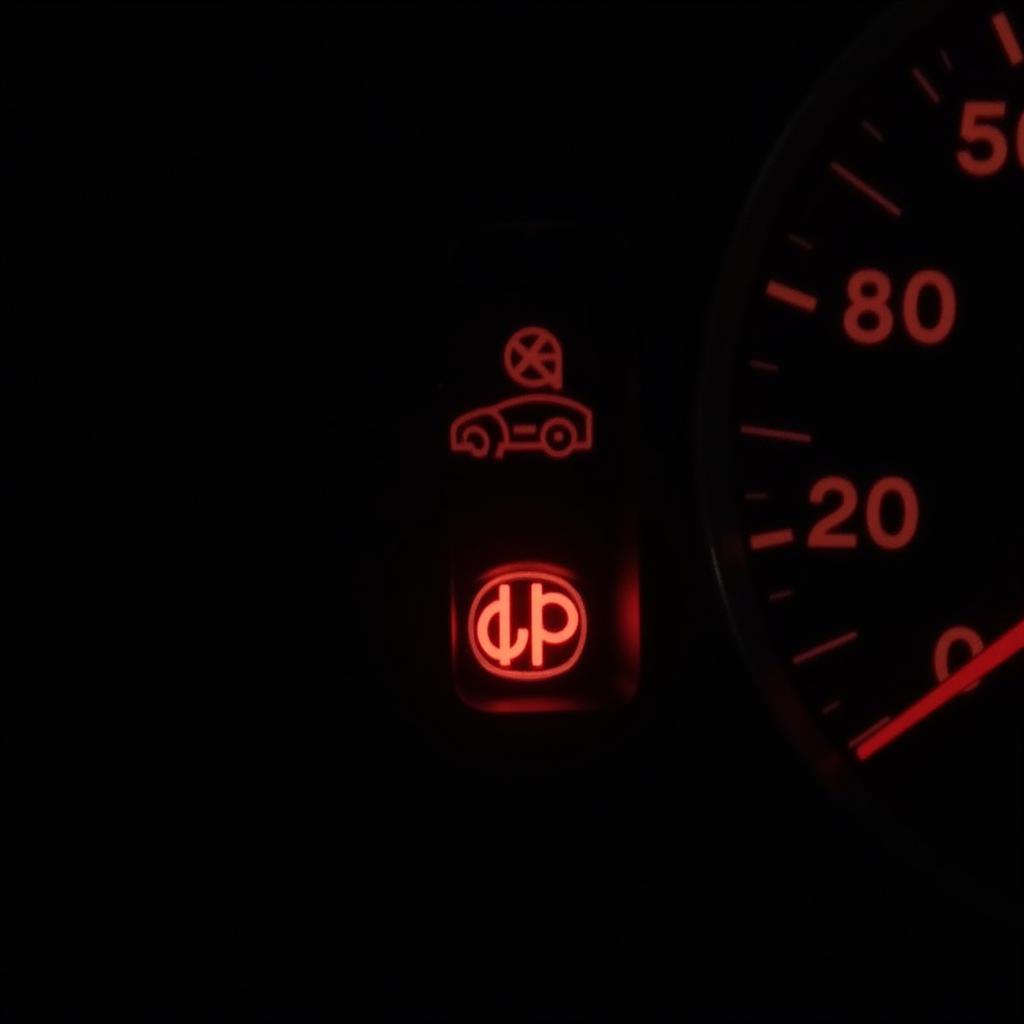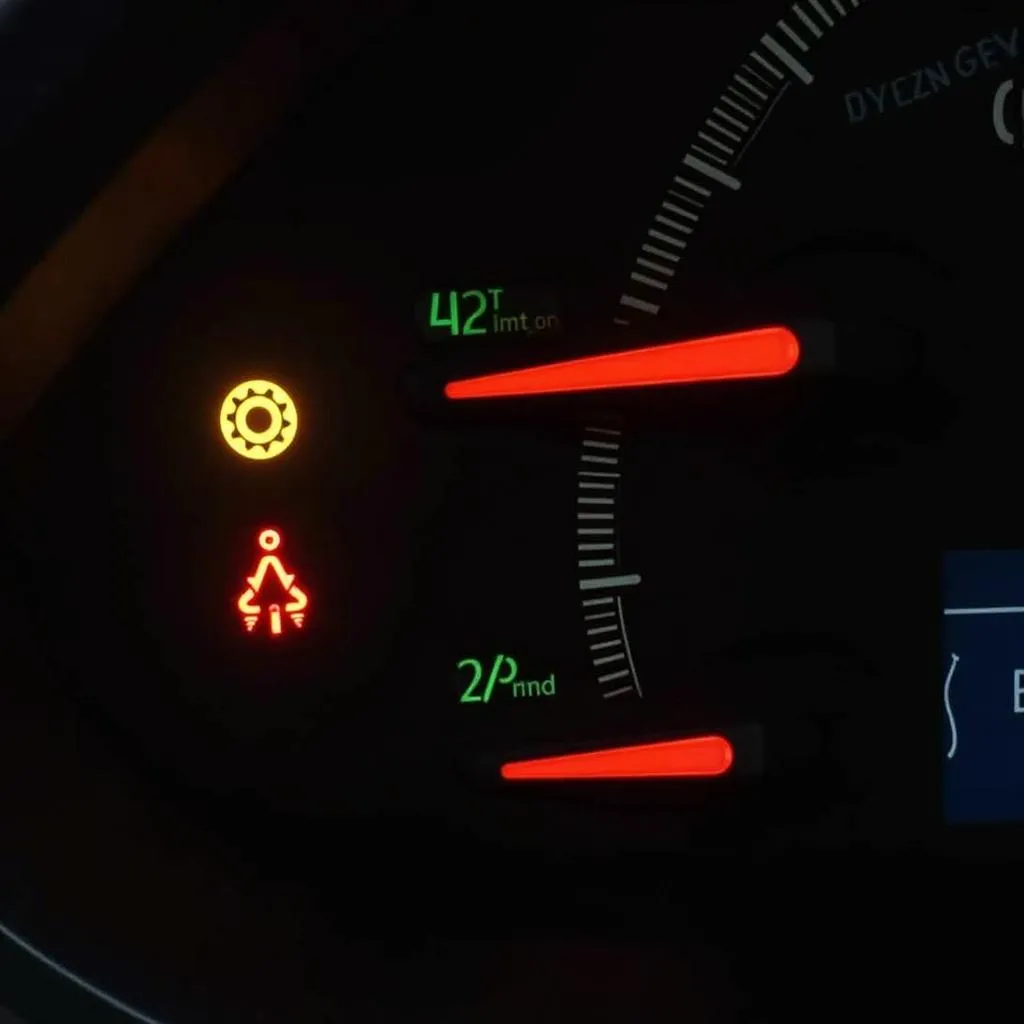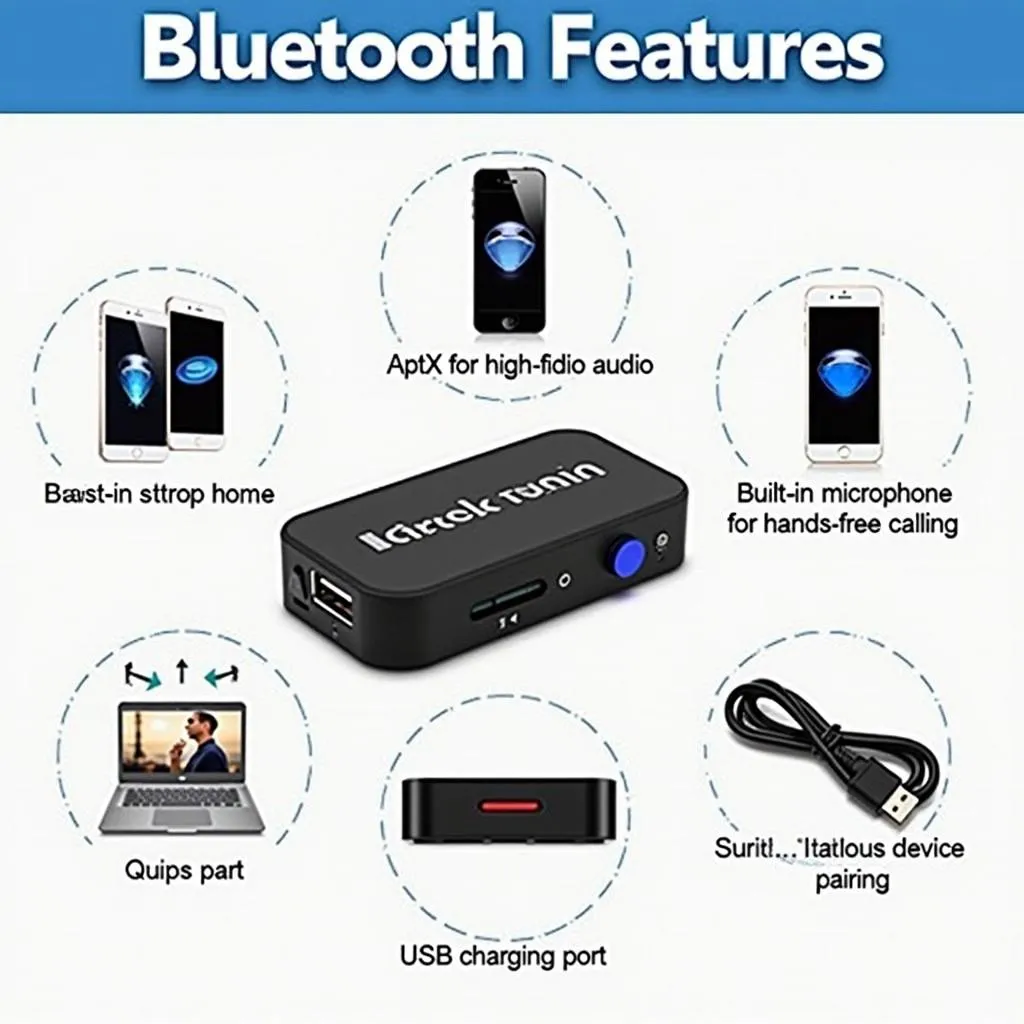The dreaded VW brake warning light flashing on your dashboard can cause immediate concern. While it often signals an issue with your braking system, a lit brake warning light doesn’t always mean a trip to the mechanic is imminent. In many cases, the culprit could be faulty VW brake warning light wiring. This comprehensive guide delves into the common causes of brake warning light issues related to wiring, provides troubleshooting tips, and outlines solutions to get you back on the road safely.
Understanding Your VW Brake Warning Light
Your VW’s brake warning light is a crucial part of its safety system. It can illuminate for various reasons, including:
- Worn Brake Pads: This is the most common reason for the light to activate.
- Low Brake Fluid: A leak in the brake system can lead to low fluid levels.
- ABS Issues: Problems with the Anti-lock Braking System (ABS) can trigger the light.
- Faulty Brake Light Switch: This switch signals the brake lights to turn on when you press the brake pedal.
- Wiring Problems: Damaged, corroded, or loose wiring within the brake system can disrupt signals and cause the warning light to illuminate.
 VW Brake Warning Light on Dashboard
VW Brake Warning Light on Dashboard
VW Brake Warning Light Wiring: Common Culprits
Wiring issues can be a headache to diagnose, but understanding the common problem areas is a good starting point. Here are some areas to inspect:
- Brake Pad Wear Sensors: Most VWs use sensors that monitor brake pad wear. If the sensor wiring is damaged or corroded, it can trigger the warning light even if your brake pads are fine.
- Brake Light Switch Wiring: The brake light switch is responsible for activating your brake lights when you press the pedal. Faulty wiring here can cause a range of issues, including a malfunctioning brake warning light.
- ABS Sensor Wiring: Each wheel has an ABS sensor that sends speed data to the ABS control unit. Damaged wiring to any of these sensors can trigger the brake warning light.
- Ground Wire Issues: A poor ground connection can disrupt the entire braking system’s electrical signals, leading to a false warning light.
Troubleshooting VW Brake Warning Light Wiring Issues
Before you assume the worst, here’s a step-by-step approach to help you diagnose potential wiring issues:
- Check Your Brake Fluid: This may seem obvious, but low brake fluid is a common culprit and easy to check. If the fluid level is low, there’s likely a leak that needs immediate attention.
- Inspect Your Brake Pads: If your brake pads are worn down, replacing them might solve the problem.
- Visually Inspect the Wiring: Look for any signs of damage, such as frayed wires, corrosion, or loose connections, particularly near the wheels, brake master cylinder, and along the chassis.
- Test the Brake Light Switch: A multimeter can be used to test the switch’s continuity. If the switch is faulty, it will need replacing.
- Scan for Fault Codes: A diagnostic scanner can read the fault codes stored in your VW’s computer, providing valuable insights into the problem’s source.
When to Seek Professional Help
While simple wiring issues might be addressed with basic DIY knowledge, more complex problems often require the expertise of a qualified mechanic. If you’re uncomfortable working on your car’s electrical system or if your initial troubleshooting doesn’t resolve the issue, it’s best to seek professional help. They have the experience, specialized tools, and diagnostic equipment to identify and fix the problem accurately and safely.
Preventative Maintenance: Keeping Your VW’s Brakes in Top Shape
Regular maintenance is key to preventing brake warning light issues caused by faulty wiring:
- Regular Inspections: Schedule routine brake inspections with your mechanic, especially as your vehicle ages.
- Brake Fluid Flushes: Flush your brake fluid according to your VW’s maintenance schedule to prevent corrosion and maintain optimal braking performance.
- Address Issues Promptly: Don’t ignore any warning lights or unusual brake system behavior. Address issues as soon as they arise to prevent further damage and costly repairs.
Conclusion
While a glowing VW brake warning light can be alarming, it’s often a sign of a solvable problem, sometimes as simple as faulty wiring. By understanding the common causes, performing basic troubleshooting, and seeking professional help when needed, you can ensure your VW’s braking system remains in optimal condition, keeping you safe on the road. For specific brake warning light issues on various VW models, refer to our detailed guides on how to turn off brake pad warning light vw passat, vw golf mk5 brake warning light, and 2003 vw passat brake pad warning light.
Remember, maintaining a well-maintained braking system is crucial for your safety and the longevity of your vehicle.


